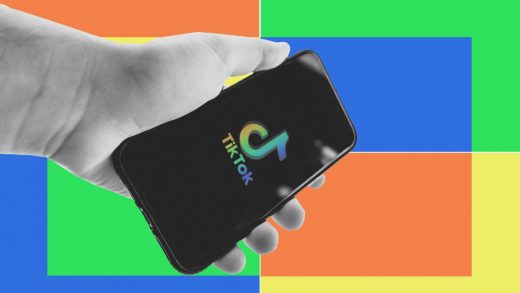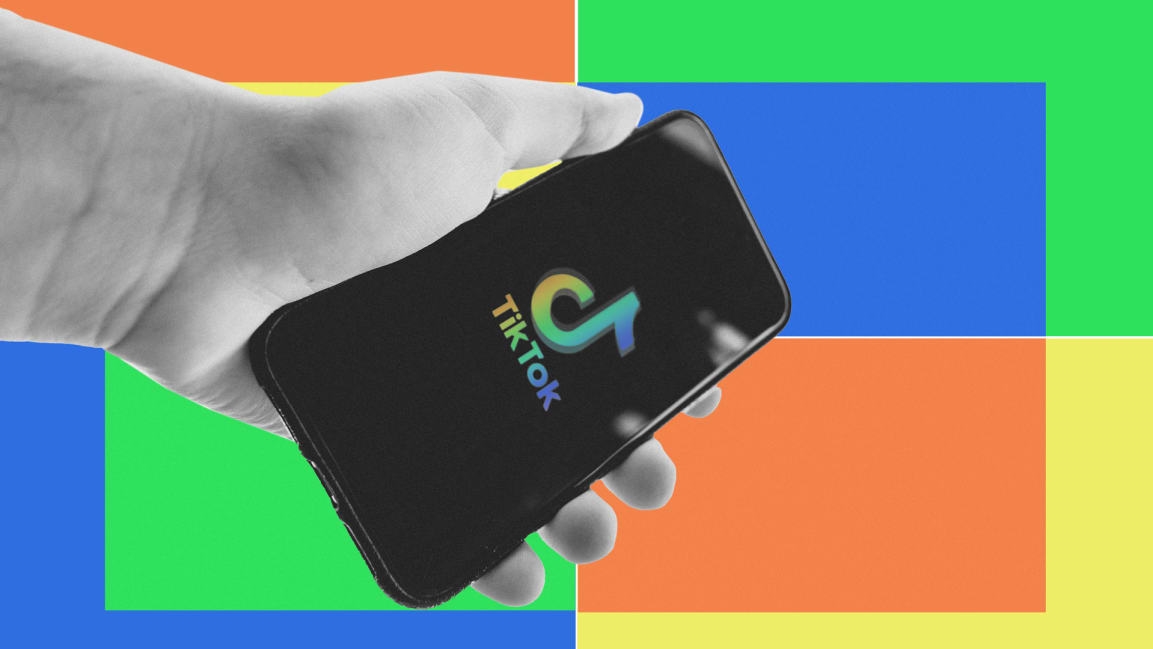Why buying TikTok is a smart move for Microsoft
The news late last week that Microsoft has been in negotiations to acquire the short-form video app TikTok was a bit surprising. Hearing business-focused Microsoft mentioned in the same sentence with the dancing and lip-syncing wonder that is TikTok didn’t sound quite right—at first. But upon further reflection, a Microsoft-TikTok tie-up begins to make more sense. In fact, a deal—if both companies are able to appease the Trump administration—could be good news for Microsoft.
As TikTok has grown to 100 million U.S. users and climbed to the top of app store charts, Republicans and the White House have become increasingly worried that the app, which is owned by the Chinese company ByteDance, will share the personal data of U.S. users with the Chinese government if asked. It’s a legitimate concern, as Chinese law gives the government power to demand data from China-based companies (TikTok has long said it has never given U.S. user data to the Chinese government and says it would deny any such request).
But TikTok has been turned into a geopolitical football, another way for the Trump White House to punch back at China, which has banned hundreds of apps developed in the United States. Now, the Trump Administration wants an acquirer for TikTok’s U.S. business that can provide assurance that the user data of U.S. users will be locked down on servers within the country. Microsoft is angling to be the beneficiary of this whole situation, and it appears to have moved swiftly and leveraged its D.C. connections to do so. The company has reportedly been in talks with TikTok since early July, according to The Wall Street Journal, as whispers of a full ban on the app began to emerge from the Trump administration.
Given the political maneuverings at play, the Microsoft/TikTok deal could make other tech acquisitions look simple. On top of the considerable complexities of the deal itself, both companies must take the fluid posture and evolving demands of the White House into account. Microsoft CEO Satya Nadella called Trump over the weekend to give Microsoft’s pitch for buying TikTok. It apparently worked, because Trump suddenly became open to the idea, after previously favoring a simple ban on the app. The company published an odd blog post on Sunday that merely confirmed Microsoft wants to buy TikTok while spending a lot of words praising and thanking Trump (the WSJ reports that the blog was written after the White House asked Microsoft to make a statement). Then, during a press briefing in the Rose Garden Monday, Trump added a new unprecedented demand. Not only does he want a chance to poke China in the eye by effectively transferring a crown jewel Chinese tech achievement to a U.S. company; he also wants the U.S. Treasury to get a cut of the proceeds from the sale.
If Microsoft is able to manage the Trump Administration’s volatility, acquiring TikTok would be a real coup for the company. The app’s short-form video format, easy music integration, and simple editing tools inspire its users’ creativity and ingenuity. And the app’s interface brings out that compulsive, catnip response in users that makes venture capitalists’ and big tech companies’ hands sweat. It’s an app that resonates with teen and 20-something sensibilities, an attribute that’s seen as the holy grail for tech companies and brand advertisers.
A new hope for Microsoft
TikTok could help Microsoft establish itself as a real consumer tech player, after a long history of failures in the space. Its Bing search engine is very good, but has always been lost in the shadow of Google search. Microsoft bought the Finnish smartphone legend Nokia, hoping to catch the mobile wave at last, but the pairing was far from fruitful, and Microsoft’s smartphone ambitions were largely abandoned when Satya Nadella became CEO of Microsoft in 2014. Microsoft gave live game streaming a go with Mixer, but that too failed to catch on and Microsoft shut down the business in June, ceding its users to Facebook. TikTok may be Microsoft’s big chance to get back in the consumer tech game.
TikTok could help Microsoft establish itself as a real consumer tech player, after a long history of failures.
One core reason the acquisition makes sense for Microsoft is TikTok can provide a connection with young users. But for Microsoft, this goes way beyond app marketing and ad targeting. It needs to get Gen Z and millennials to buy into the Microsoft ecosystem later as they—and Microsoft—grow older. As research has shown, younger workers are likely to use a variety of software and apps, from Apple’s FaceTime to Google Docs to Zoom, and are less likely to use Microsoft productivity tools just because their company wants them to. A TikTok acquisition might cast Microsoft in a different light with younger workers, and give the legacy brand more currency.
In addition, Microsoft could learn from TikTok’s approach and appeal to younger users. On a functional level, TikTok’s app design, video suggestion algorithms, and video creation tools could influence both Microsoft’s consumer- and business-facing products. Microsoft executives and engineers often talk about the idea that in the real world, the line between work life and personal life often becomes blurred, and business apps increasingly take design cues from consumer apps.
Microsoft may, over time, leverage some of TikTok’s best technologies in more concrete ways—in AI, for example. Microsoft is creating AI tools that businesses can quickly plug in and use, delivered from the Azure cloud. Some of those tools are based on natural language processing, while others are based on computer vision tech, which can be used to label and classify images and video, among other things. One of the big challenges of making these tools smarter is finding enough labeled data that can be used for training. With TikTok, Microsoft would be getting a large amount of short video that’s been tagged and labeled in an ad hoc way by users, which could be used as training data for its AI models. Facebook is now doing that very thing with images and video posted to Instagram and tagged by users.
One of Microsoft’s real consumer successes has been gaming (with Xbox), and a TikTok acquisition might also play into the company’s ambitions to launch a subscription gaming service. Microsoft may be able to use TikTok for that platform, so that users could watch videos of gameplay and then seamlessly cross over and begin actually playing the game.
According to data from eMarketer, a TikTok deal might put Microsoft back in the game in terms of interactive display ads. The market for such ads has been dominated by Facebook and Google for a long time, with Microsoft lagging far behind (it gets only about 1.5% of that business in the U.S.). TikTok collects data on the kind of videos people like, then feeds it into the algorithm it uses to populate the endless video feed users see. It also uses the data for targeting in its fledgling ad business, which offers individuals and small businesses a chance to promote themselves within the TikTok app. If given the chance, Microsoft might make wider use of that video preference data. The company could use it not just to target ads within TikTok, but also to target ads on its other properties, such as Bing, MSN, Outlook, and Xbox Live.
The least worst?
From regulators’ perspective, a Microsoft acquisition of TikTok may be one of the better options. If it has to be a giant U.S. tech company that buys TikTok, Microsoft may be the least offensive from an antitrust point of view. If Facebook were to acquire TikTok, it would only add to the company’s dominance in social networking (the company is now launching its own TikTok clone, Reels). A TikTok acquisition would increase Google’s dominant position in terms of ad targeting data. Amazon already has a burgeoning ad business of its own, built on consumer purchasing behavioral data. An Apple acquisition of TikTok might be less harmful, but Apple has no interest in social media businesses that make money by harvesting user data to sell ads (Apple confirmed that position Tuesday, responding to an erroneous report that it was interested in buying TikTok). A more powerful and appealing Microsoft ads business would create a real challenge to the Facebook/Google duopoly, which could ultimately help large and small U.S. businesses.
The wildcard, of course, is Trump and his people.
The biggest mistake Microsoft could make if the acquisition moves forward is to immediately try to mold TikTok into something it isn’t. Microsoft should offer hosting, security, and support, but stay in the background and let TikTok be TikTok. There’s reason to believe it’ll do just that. The company acquired Mejong (maker of the Minecraft game) in 2014, LinkedIn in 2016, and GitHub in 2018, and has left those businesses to operate pretty much as they were before the acquisition. All three of those businesses have done well.
If Microsoft handles TikTok the same way, the dance moves and sight gags could continue uninterrupted for TikTok users and a growing group of influencers. Many of those users might feel a little better knowing that their content and preferences data resides on U.S. servers managed by a responsible party.
The Trump administration said that “Microsoft or some other company” has a month and a half to put a deal together before TikTok goes dark in the U.S. and the app disappears from the U.S. app stores. Microsoft can very likely pull out all the stops to make this happen. ByteDance CEO and founder Zhang Yiming once worked at Microsoft and reportedly favors Microsoft as an acquirer.
The wildcard, of course, is Trump and his people.
The next 41 days are going to be very long ones for Microsoft. If Trump doesn’t manage to queer the deal altogether, Nadella and company could emerge with a shiny new app that, if handled correctly, could change Microsoft’s place in the tech world for the better.
(25)



